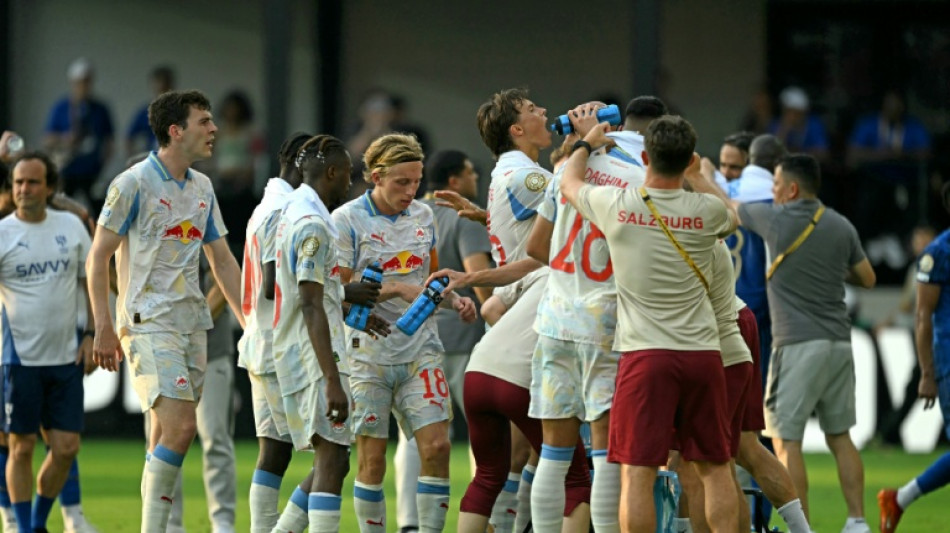
-
 World Rugby unfazed over England dominance of women's game
World Rugby unfazed over England dominance of women's game
-
Bruised Real Madrid still defining spirit, personality: Alonso

-
 Dolly Parton scraps Vegas shows over health issues
Dolly Parton scraps Vegas shows over health issues
-
Maresca says 'no panic' at Chelsea despite mini-slump
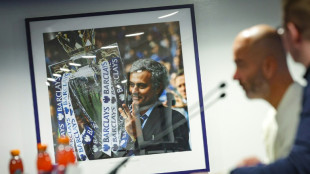
-
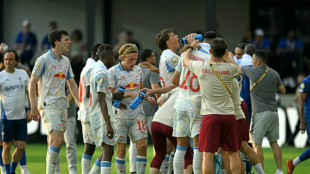 FIFPro sounds alarm over 'extreme' conditions at 2026 World Cup
FIFPro sounds alarm over 'extreme' conditions at 2026 World Cup
-
Jaguar Land Rover to partly resume output after cyberattack

-
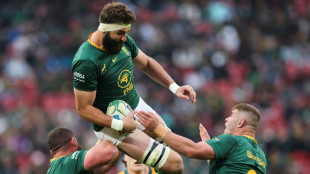 Springboks recall De Jager after Mostert withdraws
Springboks recall De Jager after Mostert withdraws
-
Alcaraz fights back in Tokyo to emulate Nadal with 10th final of season
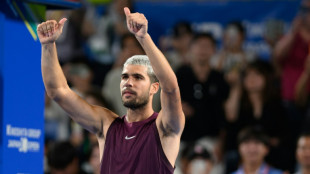
-
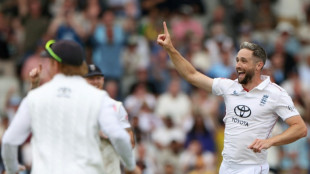 England bowler Woakes retires from international cricket
England bowler Woakes retires from international cricket
-
UK plans tougher rules for migrants seeking to stay in country

-
 Jailed Thai ex-PM Thaksin requests royal pardon: lawyer
Jailed Thai ex-PM Thaksin requests royal pardon: lawyer
-
Swiatek says may flout 'crazy' rules to protect health

-
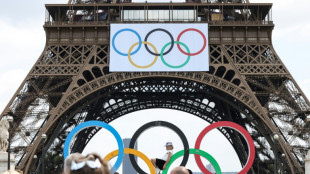 Paris Olympics and Paralympics cost French state 6.6bn euros: audit body
Paris Olympics and Paralympics cost French state 6.6bn euros: audit body
-
Rooney says he has 'no faith' that Amorim can revive Man Utd

-
 'Are you watching Donald Trump?': Europe's Ryder Cup golfers taunt president
'Are you watching Donald Trump?': Europe's Ryder Cup golfers taunt president
-
Moldova's pro-EU party hails poll win despite 'dirty' Russian tactics

-
 Typhoon Bualoi kills dozens in Vietnam and Philippines
Typhoon Bualoi kills dozens in Vietnam and Philippines
-
Wallabies' big-man Skelton ready to impose himself against All Blacks
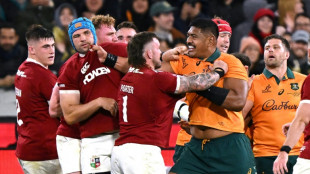
-
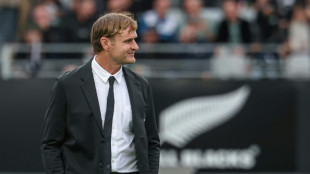 Robertson wants All Blacks to 'pressure' Wallabies in rematch
Robertson wants All Blacks to 'pressure' Wallabies in rematch
-
Sinner cruises into China Open semi-finals as Swiatek moves on

-
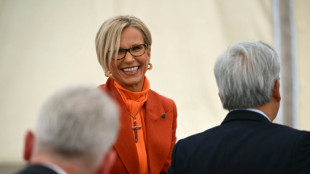 GSK switches CEO as Trump tariffs test pharma
GSK switches CEO as Trump tariffs test pharma
-
Trump to push Netanyahu on Gaza peace plan at White House

-
 Most markets track Wall St gains after US inflation data
Most markets track Wall St gains after US inflation data
-
Typhoon Bualoi batters Vietnam coast, killing 11

-
 Germany's Lufthansa to slash 4,000 jobs by 2030
Germany's Lufthansa to slash 4,000 jobs by 2030
-
Moldova's pro-EU party wins key polls after Russian meddling claims
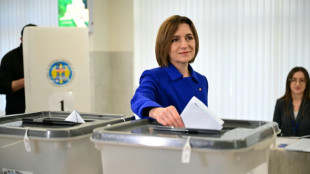
-
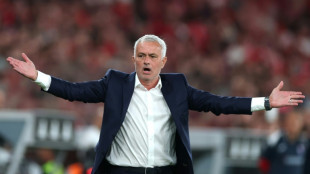 Mourinho Chelsea return prompts old memories, mixed feelings
Mourinho Chelsea return prompts old memories, mixed feelings
-
'Predators': how reality TV explains Epstein obsession

-
 Most Asian markets track Wall St higher after US inflation data
Most Asian markets track Wall St higher after US inflation data
-
India, Pakistan trade accusations after Asia Cup trophy debacle
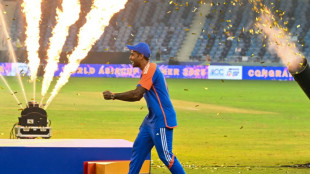
-
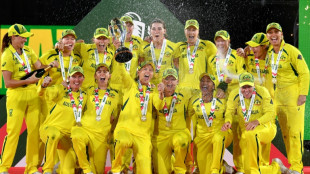 Power-packed Australia favourites to rewrite World Cup history
Power-packed Australia favourites to rewrite World Cup history
-
Latin artist Bad Bunny to headline Super Bowl half-time show
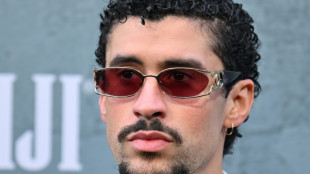
-
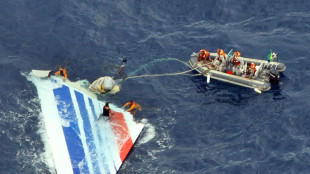 Air France, Airbus back on trial over doomed 2009 Rio flight
Air France, Airbus back on trial over doomed 2009 Rio flight
-
India's divine designs meld with AI at Durga Puja festival

-
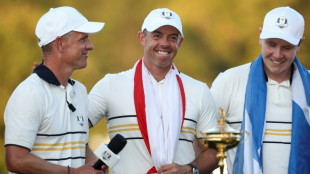 Donald won't rule out Ryder Cup captain return after Europe win
Donald won't rule out Ryder Cup captain return after Europe win
-
Who is Matthieu Blazy, the new man at Chanel?

-
 'New chapter': Paris Fashion Week to showcase industry makeover
'New chapter': Paris Fashion Week to showcase industry makeover
-
Bradley on US Ryder Cup loss: 'This is no one's fault but mine'
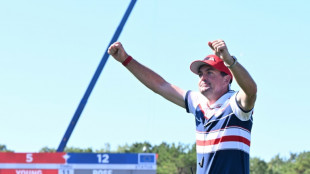
-
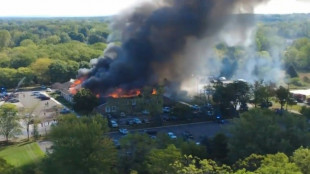 Four killed in attack on northern US Mormon church
Four killed in attack on northern US Mormon church
-
Bradley calls for Ryder Cup rule change for injuries
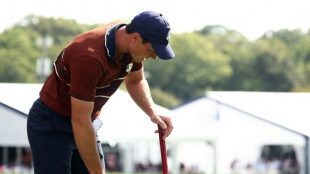
-
 McIlroy slams 'unacceptable' Ryder Cup heckling
McIlroy slams 'unacceptable' Ryder Cup heckling
-
Embattled Australia telco giant hit by another major outage

-
 31 Concept Accelerates Next-Gen DPI Leadership With Strategic Acquisition of Xynthor AI
31 Concept Accelerates Next-Gen DPI Leadership With Strategic Acquisition of Xynthor AI
-
Mahomes leads resurgent Chiefs in Ravens rout, Eagles stay unbeaten
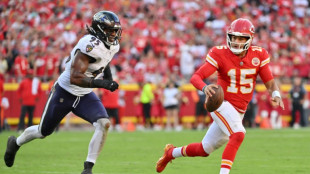
-
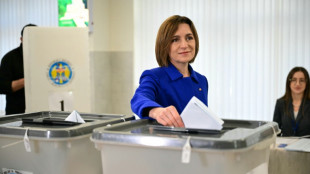 Moldova's pro-EU party tops polls hit by Russian meddling claims
Moldova's pro-EU party tops polls hit by Russian meddling claims
-
Europe win emotional Ryder Cup triumph after US fightback

-
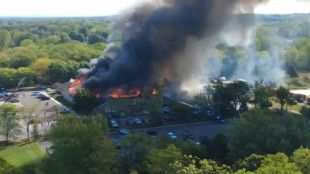 Two dead after shooting, fire at US Mormon church
Two dead after shooting, fire at US Mormon church
-
Europe must step up efforts to protect environment: report

-
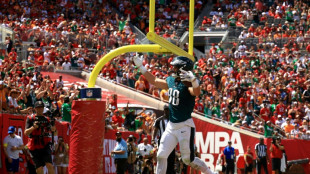 Eagles down Bucs to stay unbeaten, Bills march on
Eagles down Bucs to stay unbeaten, Bills march on
-
Incumbent absent as Cameroon presidential campaigning picks up
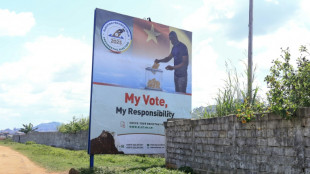

FIFPro sounds alarm over 'extreme' conditions at 2026 World Cup
Global players' union FIFPro on Monday sounded the alarm over the dangers of playing in extreme heat at the 2026 World Cup, which will take place across the United States, Mexico and Canada.
In the wake of the Club World Cup, which ran through June and July in the US this year, FIFPro's director of policy and strategic relations Alexander Bielefeld called the tournament "a wake-up call in the context of a warming planet".
With many of the matches in the club tournament taking place in the middle of the afternoon in the US when temperatures often soar well past 30C, FIFPro flagged the "severe challenges to players' and participants' safety and health" when playing in extreme conditions.
To combat this, it said "the existing schedule (for the World Cup) and venue selections may need to be reassessed to better safeguard player health, protect fan well-being, and support optimal performance".
The union also called for longer half-time breaks and more regular cooling breaks.
FIFPro general secretary Alex Philips said "we are having informal discussions (with organisers) about the use of air-conditioned stadiums", but added "nothing concrete" had arisen from talks.
The report also highlighted the impact of the Club World Cup on players' workloads following the club season.
Bielefeld said the "timing of the Club World Cup had a very negative impact" on players' rest periods and their pre-season.
According to the report no players from the analysed participant clubs reached the minimum 28-day off-season and many started the current season without the minimum required four-week pre-season and re-training period.
Nottingham Forest and New Zealand striker Chris Wood told journalists on a call presenting the report: "For us as players it's vitally important that we have the recovery period to go again."
The 33-year-old added not having the minimum recovery period was "feasible over one or two seasons, but not for five or six".
The union also flagged the increasing number of minutes being played by star youngsters such as Barcelona's Lamine Yamal.
Yamal racked up over 8,000 minutes of playing time for his club and country prior to turning 18, which FIFPro said far surpassed that of previous "generational talents" like Andres Iniesta or Kylian Mbappe.
Chair of FIFPro's high-performance advisory network Darren Burgess said "players are still growing and maturing until 24-25 years of age, overexposure before then is taking an injury risk".
Wood added a balance needed to be struck in finding the right amount of time for teenagers to be playing.
"When you're young, you just want to play football. You don't think about how your body is changing and growing," he said.
"It's about finding that balance by educating younger players about the risks."
P.Staeheli--VB

